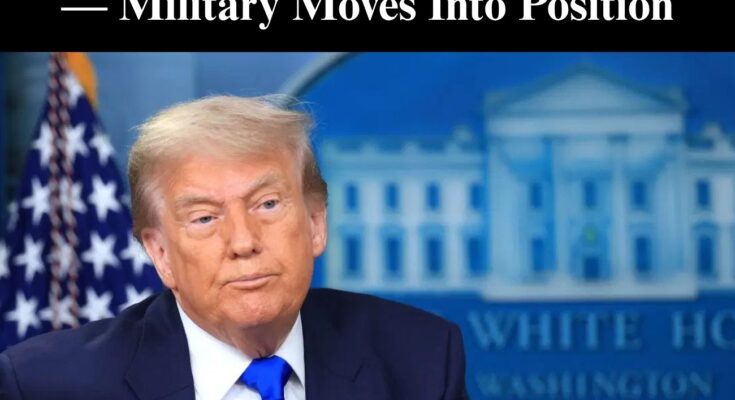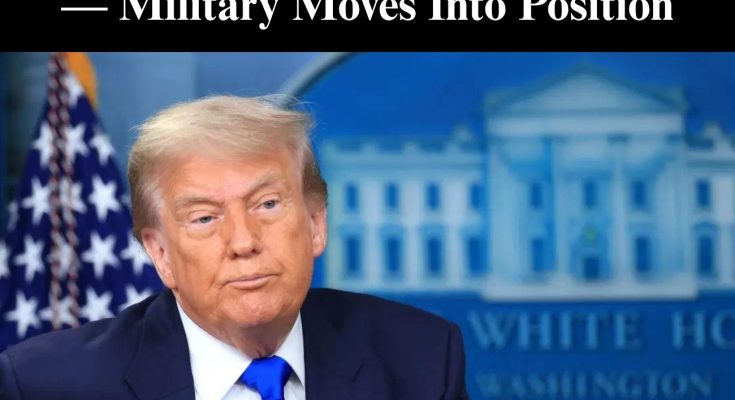
President Donald Trump has designated drug cartels as unlawful combatants and stated that the United States is engaged in an “armed conflict” with them, according to an administration memo obtained Thursday by The Associated Press. The declaration follows recent U.S. military strikes against boats in the Caribbean.
The memo signals an expansive interpretation of presidential war powers, framing drug trafficking into the United States as an act of armed conflict that justifies military action — a shift that could provide new legal grounds for both past and future operations, the Associated Press reported.
“The President determined that the United States is in a non-international armed conflict with these designated terrorist organizations,” the memo says. Trump directed the War Department to “conduct operations against them pursuant to the law of armed conflict.”
“The United States has now reached a critical point where we must use force in self-defense and defense of others against the ongoing attacks by these designated terrorist organizations,” the memo says, per the AP.
Beyond marking a potential shift in Trump’s “America First” agenda, which emphasizes limiting foreign interventions, the declaration raises significant questions about the scope of presidential war powers, said the outlet.
It remains unclear how far the White House intends to extend its authority in targeting cartels — and whether Congress will move to assert its role in authorizing or restricting such military actions.
“The United States is taking a much more dramatic step — one that I think is a very, very far stretch of international law and a dangerous one,” Matthew Waxman, a national security official in the George W. Bush administration, told the AP.
“It “means the United States can target members of those cartels with lethal force. It means the United States can capture and detain them without trial,” he added.
The U.S. military conducted three strikes last month against boats in the Caribbean that officials said were transporting narcotics, with at least two of the vessels reportedly originating from Venezuela.
The actions came amid a major buildup of American maritime forces in the region, described by defense officials as the largest in recent memory. The Navy has maintained a presence of eight warships and more than 5,000 sailors and Marines in the Caribbean for several weeks, according to two officials who spoke on condition of anonymity because the operations are ongoing, noted the AP.
While there was no timestamp on the memo, it nevertheless referenced a Sept. 15 strike by American forces that “resulted in the destruction of the vessel, the illicit narcotics, and the death of approximately 3 unlawful combatants.”
“As we have said many times, the President acted in line with the law of armed conflict to protect our country from those trying to bring deadly poison to our shores, and he is delivering on his promise to take on the cartels and eliminate these national security threats from murdering more Americans,” the White House said at the time, per the AP.
Pentagon officials briefed senators on the recent strikes during a classified session at the Capitol on Wednesday, according to a person familiar with the matter who spoke on condition of anonymity. The White House directed follow-up questions back to the administration. Several senators interpreted the briefing as outlining a new legal framework for military action, raising concerns about Congress’s role in authorizing such operations, the person told the AP.
House staffers were given a separate briefing on the strikes last week, according to another individual familiar with that meeting, who also requested anonymity to discuss the matter, the AP noted.
“The memo, which was reported earlier by The New York Times, lays out a rationale seen both as the administration’s justification for the military strikes it has already taken on the boats in the Caribbean — which have raised concerns from lawmakers as potentially unlawful — as well as any action to come,” the outlet reported.

